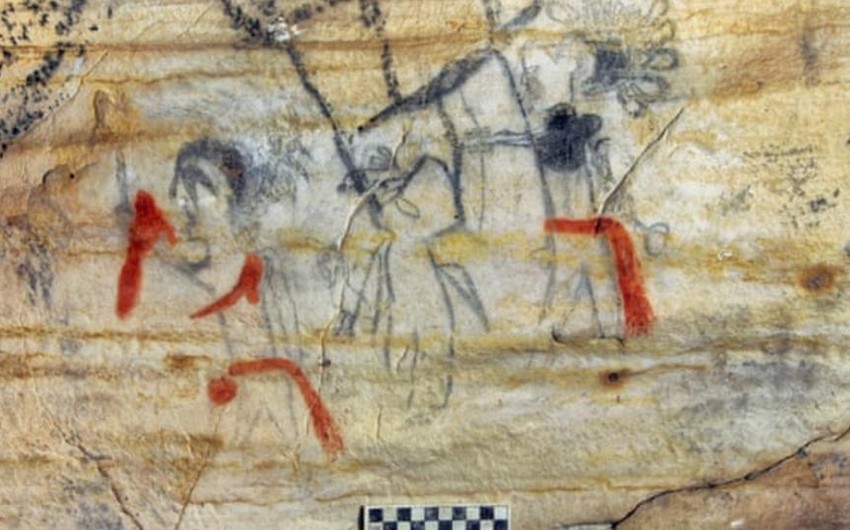A Missouri cave containing Native American artwork from more than 1,000 years ago was sold at auction on Sept. 14, disappointing leaders of the Osage Nation who hoped to buy the land to “protect and preserve our most sacred site,” Report informs referring to The Guardian.
A bidder agreed to pay $2.2 million to private owners for what’s known as “Picture Cave,” along with the 43 hilly acres that surround it near the town of Warrenton, about 60 miles (97km) west of St Louis.
The cave was the site of sacred rituals and burying of the dead. It also has more than 290 prehistoric glyphs, or hieroglyphic symbols used to represent sounds or meanings, “making it the largest collection of Indigenous people’s polychrome paintings in Missouri,” according to the auction website.
Carol Diaz-Granados opposed the sale. She and her husband, James Duncan, spent 20 years researching the cave and wrote a book about it. Duncan is a scholar in Osage oral history, and Diaz-Granados is a research associate in the anthropology department at Washington University in St Louis.
“Auctioning off a sacred American Indian site truly sends the wrong message,” Diaz-Granados said. “It’s like auctioning off the Sistine Chapel.”
The Osage Nation, in a statement, called the sale “truly heartbreaking.”
“Our ancestors lived in this area for 1,300 years,” the statement read. “This was our land. We have hundreds of thousands of our ancestors buried throughout Missouri and Illinois, including Picture Cave.”
The cave features drawings of people, animals, birds, and mythical creatures. Diaz-Granados said various means were used to create the art. Charred botanical material was used to draw. For one depiction of a mythical being, the artist created a white figure by scraping off the brown sandstone.


 https://static.report.az/photo/75604d95-ae57-345b-89cb-4a2e97d65eec.jpeg
https://static.report.az/photo/75604d95-ae57-345b-89cb-4a2e97d65eec.jpeg

